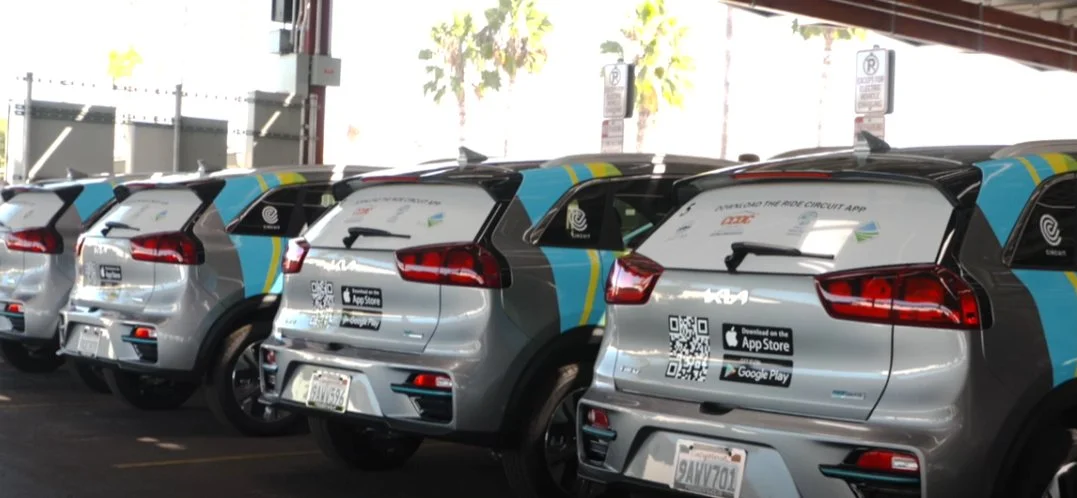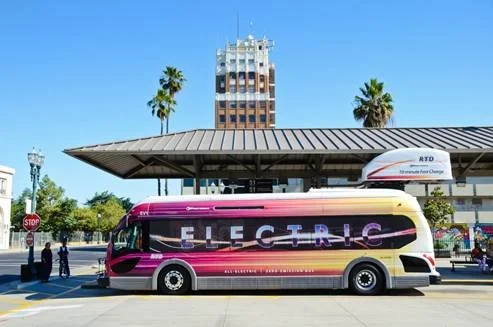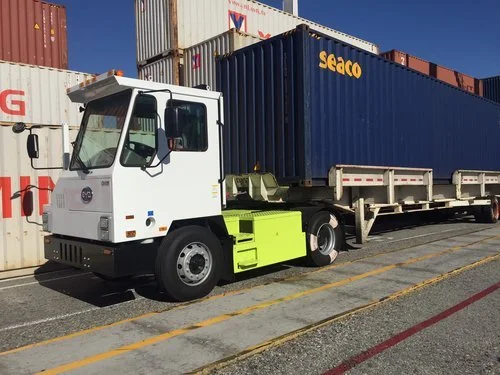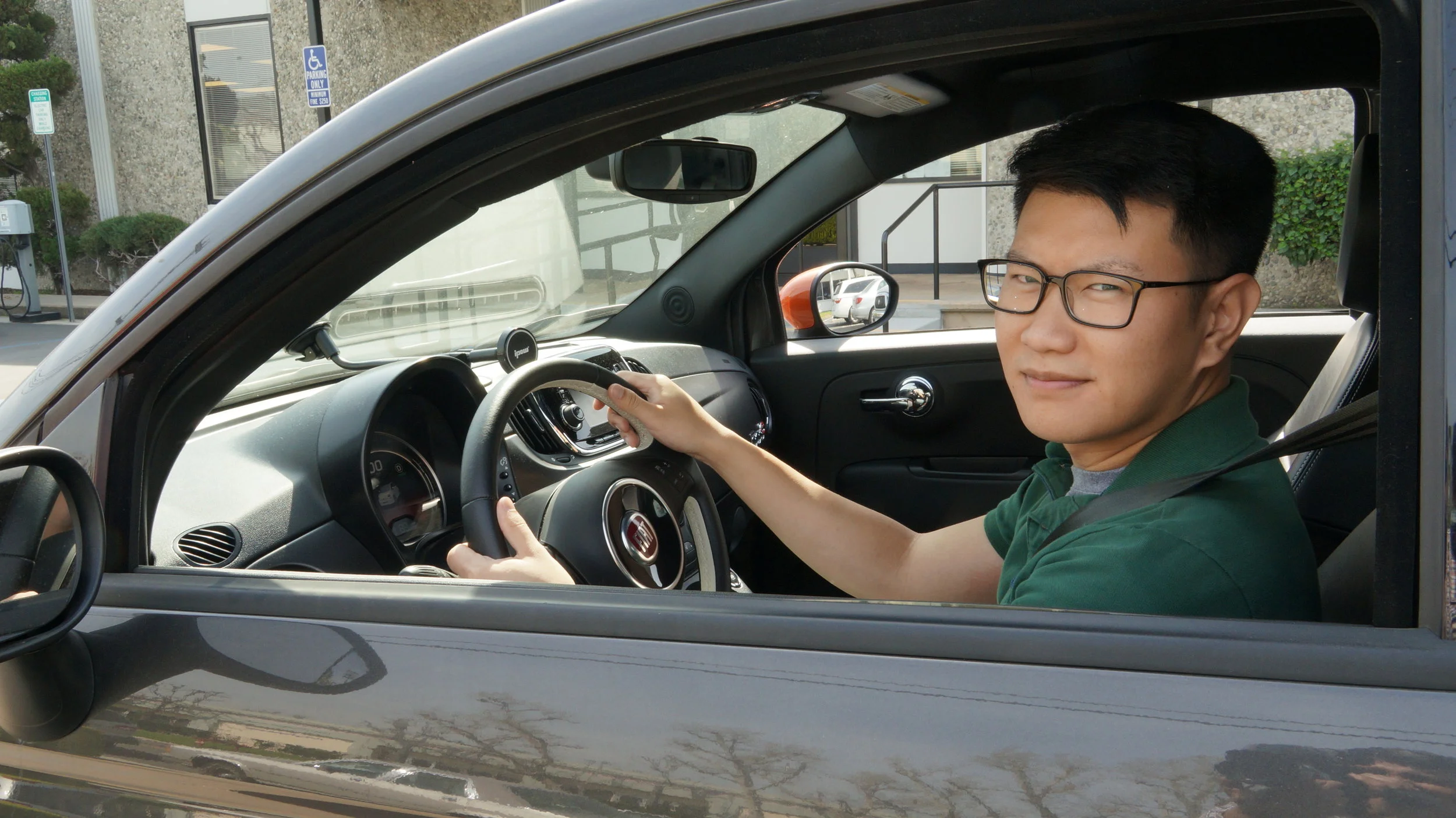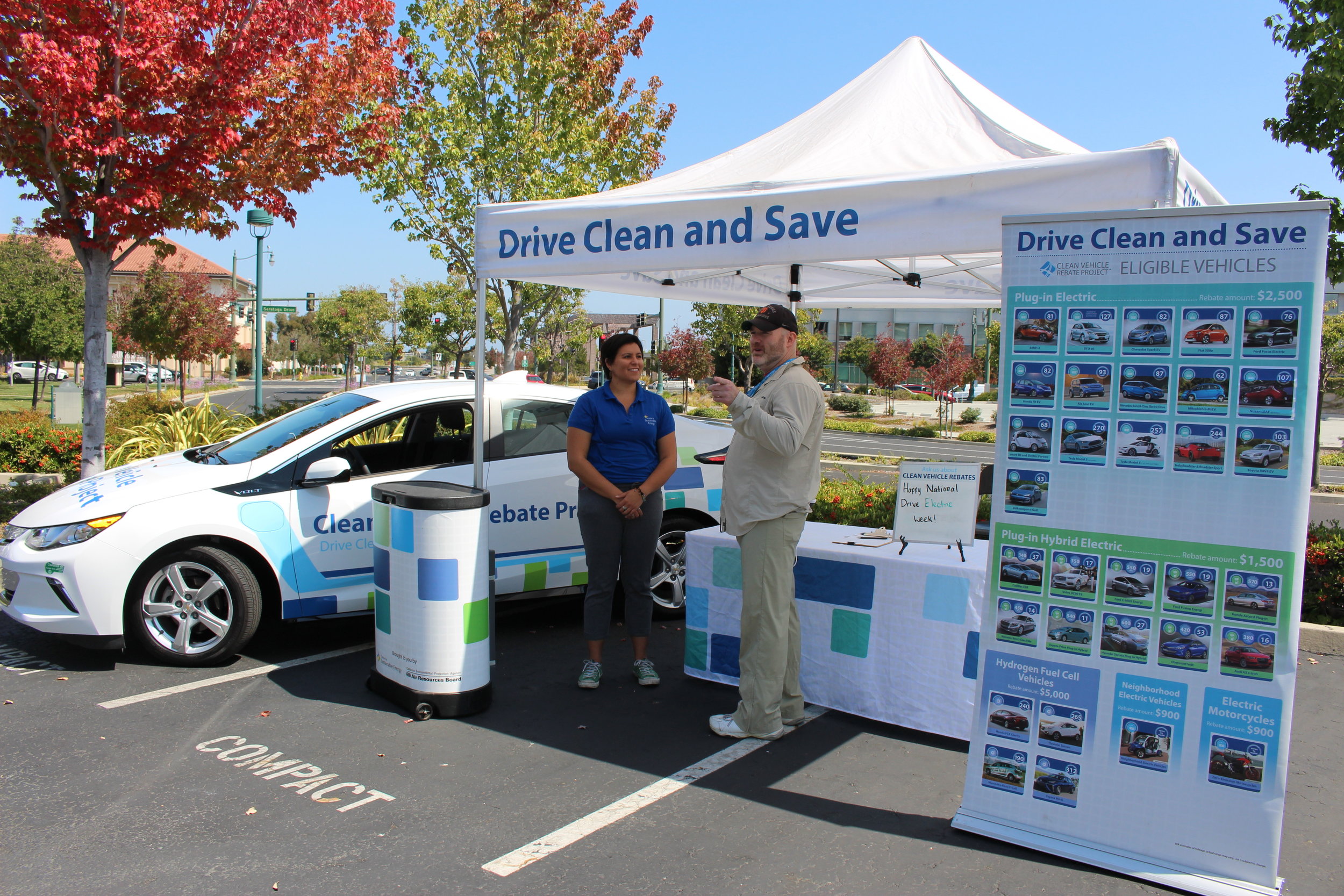With funding from the California State Transportation Agency’s Transit and Intercity Rail Capital Program, the Humboldt Transit Authority will procure eleven fuel cell electric buses for use throughout the North Coast and build the northern-most hydrogen fueling station for public and bus use in California. This project will also create a new intercity transit service to connect local riders from Eureka to Ukiah and points south, including the San Francisco Bay Area, with fuel cell electric buses.
Zero-Emission Tractor Demonstration Projects in the Bay Area
California Air Resources Board
Thanks to funding from California Air Resources Board’s FARMER program, the Bay Area Air Quality Management District (BAAQMD) is funding some of the first zero‑emission agricultural tractor demonstration projects in the state. BAAQMD and CARB recently awarded $1 million to manufacturers to produce seven zero‑emission tractors which are now in operation at The Mushroom Farm LLC, Old School Vineyards LP, Arroyo Lindo Vineyards, Crocker Estate, and Wente Vineyards.
City of Chula Vista Launches New On-Demand Community Shuttle
A Multi-Faceted Approach to Addressing Community-Identified Transportation Needs
The Sustainable Transportation Equity Project (STEP) is designed to increase transportation equity in disadvantaged and low-income communities by funding planning and clean transportation projects and directly engaging community residents in clean transportation solutions. STEP achieves this via two grant types: Implementation Grants and Planning and Capacity Building Grants. Paid for by Cap-and-Trade dollars, the grants ultimately will help people get where they need to go — be it the doctor’s office or daycare — without using a personal vehicle.
Demonstrating Emissions-Reducing Solutions for the Freight Sector
The San Joaquin Valley Flexible Solutions for Freight Facilities project, supported with $22.6 million in funding from the Zero-and Near Zero-Emission Freight Facilities Project along with $22.6 million in matched funds from project partners, demonstrated advanced technologies on locomotives and hybrid and zero-emission equipment around rail yards. For one part of this multi-component project, the Wabtec Corporation designed, manufactured, and commissioned a battery-electric locomotive to operate in tandem with two diesel locomotives from BNSF Railway, operating like a hybrid vehicle.
Zero-Emission Forklifts Bring Air Pollution Reductions to Portside Communities
SSA Marine received $4.82 million from the Clean Off-Road Equipment Voucher Incentive Project, also known as CORE, to purchase 20 zero-emission forklifts and charging infrastructure for their locations in Stockton and West Sacramento. This equipment will help reduce greenhouse gases and air pollutants in census tracts that are heavily burdened by diesel particulate matter and other air pollutants.
Big Pine Paiute Tribe of the Owens Valley Community Transportation Needs Assessment
Using funds awarded by the Clean Mobility Options program, the Big Pine Paiute Tribe of the Owens Valley, a federally recognized California Native American Tribe, conducted a community-driven transportation needs assessment to determine the transportation needs and preferences of Big Pine Paiute’s residents. After the needs assessment is completed and approved by their Tribal Council, the Big Pine Paiute Tribe can use it to apply for additional funding from Clean Mobility Options or other transportation grant programs to implement clean mobility projects.
Zero-Emission Truck and Bus Project Delivers Cleaner Air in San Joaquin Valley
Electric School Buses Benefit Students and Air Quality in Sacramento County
Zero-Emission Technology at Ports Provide Cleaner Air for Vulnerable Residents
The adjacent ports of Long Beach and Los Angeles combined are the largest fixed sources of air pollution in the South Coast Air Basin, one of the most polluted air basins in the United States, in large part because the trucks and equipment used at the ports burn diesel fuel. Recognizing this, the Sustainable Terminals Accelerating Regional Transformation demonstration project was awarded $50 million to replace trucks and equipment with zero‑emission technology. The funding, which comes from California Climate Investments, supports the deployment of 102 pieces of zero‑emission terminal equipment and trucks at seaports across California, including at the ports of Los Angeles and Long Beach. These funds are also supporting the development of new, cleaner tugboats; the deployment of two container vessels with cleaner‑burning engines; and advanced workforce development programs to support sustainable goods movement across California.
Moving Goods with Zero-Emission Technology in the Inland Empire
The Volvo Low Impact Green Heavy Transport Solutions (Volvo LIGHTS) project aims to get cleaner trucks on the road to transport goods from ports to the Inland Empire. This project includes 23 zero‑emission battery electric trucks, 29 off‑road battery electric tractors, and 58 Level 2 and direct current fast chargers.
Paving the Way for Zero-Emission Freight Facilities in Long Beach
This program will deploy 38 electric yard trucks, 9 electric gantry cranes, 18 electric heavy lift forklifts, and 15 zero-emission Class 8 trucks. The program is also including a workforce development component with curriculum being developed to support the deployment of this technology with local school districts near the three port locations, community colleges and Long Beach State University.
Driving Clean Financing Assistance Program
The Community Housing Development Corporation, a community‑based organization in Richmond, received over $6.5 million from California Climate Investments for a pilot project to assist with the purchase of newer, cleaner cars in low‑income households in Sacramento and the Bay Area. The pilot project, known as Driving Clean Assistance Program, provides up to $5,000 for hybrid or plug‑in electric vehicle price buy‑down and up to an additional $2,000 for electric vehicle service equipment. The pilot enables low‑income individuals and families, who would otherwise not qualify for a loan due to credit challenges, to obtain a loan at competitive rates. This transformative initiative includes credit counseling, budget counseling, and financial education.
Low-Emission Tractors Reduce Air Pollutants in the San Joaquin Valley
Piloting Advanced Technology Drayage Trucks
Demonstrating Zero-Emission Port Technologies in Long Beach
Thanks to a demonstration project testing advanced technologies, the Port of Los Angeles is serving as a proving ground to show how large industrial facilities can operate sustainably.
The Green Omni Terminal Demonstration Project is a full-scale demonstration of zero- and near-zero emission technologies at a working marine terminal. At full build-out, the 40-acre terminal will be the world’s first marine terminal to generate all of its energy needs from renewable sources.
Clean Vehicle Rebate Project Jumpstarts Zero-Emission Vehicle Adoption
Car shoppers in San Diego can now get pre-approved before they purchase or lease an EV and then transfer the rebate amount directly to the dealership rather than applying for the rebate after the transaction. In just a few simple steps, the car dealership can claim the transferred rebate and use it to lower the customer’s down payment.
Rebates Expand Access to Clean Vehicles
Clean cars are a cool and growing trend in California. Each month, California moves closer towards its goal of five million ZEVs by 2030 – with more than 367,000 on the road as of February 2018. This trend is happening as more drivers, like Jimmy Chang, become aware of the benefits clean vehicles bring to the environment and to their pocketbooks, and learn about the programs available to make cleaner vehicles more to accessible to all Californians.
Rebates Expand Community Access to Clean Vehicles
The State’s Clean Vehicle Rebate Project (CVRP), which is now primarily supported by Cap-and-Trade dollars, promotes clean vehicle adoption by offering rebates of up to $7,000 for the purchase or lease of new, eligible zero-emission vehicles, including electric, plug-in hybrid electric and fuel cell vehicles. Eligible California residents can follow a simple process to apply for a CVRP rebate after purchasing or leasing an eligible vehicle.





